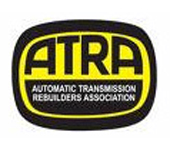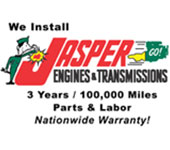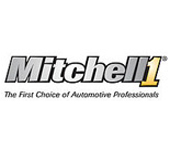817-446-7295 or 682-321-7117 | 2921 S Cooper St #101 Arlington, TX 76015
AUTONET TV
Archive for September 2020Not a Good Vibe (Driveshaft Failure)Posted September 27, 2020 8:00 AMWhen you feel your vehicle vibrating as you're driving down the road, one cause could be something you may not have ever seen: your driveshaft. It is underneath the vehicle and most drivers don't climb under there to take a look very often. The driveshaft is a cylindrical part that helps conduct the rotational power from your engine to your drive wheels. If you have a four-wheel drive vehicle, you may have two driveshafts. The drive shaft has bushings, and when they wear out, that's a likely source of the vibrations. When the bushings are in good condition, they prevent the driveshaft from vibrating. And if you don't get your vehicle repaired fairly soon after discovering vibrations, they'll continue to get worse and cause other components of the drivetrain to wear out. The driveshaft is, of course, only one part of the drivetrain. It includes other parts such as axles, transmission, differentials and joints. They all work together and need to be maintained properly. When a driveshaft fails, there can be symptoms other than vibrations. They include difficulty turning, rattles, clunks and squeaks coming from underneath your vehicle. You may even feel a shudder when you accelerate from a stop. Driveshafts can fail when they get corroded or damaged by rough roads, curbs and debris. A trained technician with experience working on drivetrains uses specialized equipment that doesn't further damage the drivetrain's other parts. Sometimes the entire driveshaft will have to be replaced; sometimes the problems can be fixed by replacing individual components. Your vehicle's drivetrain was engineered to propel you smoothly down the road. When time and distance begin to take their toll, have your vehicle looked at by your service facility. They'll know how to properly pinpoint what's causing your problems and restore your vehicle to the reliable, smooth, safe machine its designers worked hard to create. Westmoreland Transmissions Tacky or Techie? The Tachometer.Posted September 13, 2020 9:50 AMThere's a gauge that many vehicles have that says RPM on it. And there are a lot of people who either don't pay any attention to it or don't even know what it is. Here's why it's a good gauge to know about. It's called a tachometer, and that "RPM" label means it is measuring how many revolutions per minute (RPM) the engine is turning. Automotive experts know that a vehicle's engine can be damaged if it turns too fast (revving too high) or too slowly ("lugging" the engine). A tachometer (sometimes called a tach) is almost a "must-have" gauge for vehicles with a manual transmission; the driver has to manually change gears; the tach helps the driver know when revolutions are in the optimal range. Some say you don't need a tachometer if you drive a vehicle with an automatic transmission. It's true that most drivers of automatics don't even look at it. But there are times when paying attention to the tach can help you prevent an expensive repair. Here's a good example. Manufacturers now build many of their automatic transmission vehicles with shift paddles. They let you shift gears without a clutch. That's manual shifting, and drivers need to know they're not revving the engine too high. That's where the tachometer comes in, since it shows you visually when you are in the red zone (RPM too high). Here's another way the tach can help you: fuel economy. Generally speaking, the lower the RPM, the better the fuel economy. It's not good to go too low, of course, and the tachometer will help you find that spot of maximum efficiency. You can also spot problems by paying attention to the tach. When your vehicle stays in first gear longer than usual (higher reading on the tach), then the RPM dip lower than usual after shifting, it may be that your vehicle's transmission is skipping a gear. Plus, if your vehicle's RPM go up but your speed doesn't, it could mean your transmission is slipping. Either situation should be checked by a trained technician. If your commute takes you down some long grades, you might like to put your vehicle in a lower gear to help slow down the car (and not burn up the brakes). Having a tachometer keeps tabs on when your engine is revving too high. So, consider the tachometer a "bonus" gauge. It's one more helpful assistant that can help you spot and prevent problems in your vehicle. Westmoreland Transmissions
2001 E LOOP 820 S STE 19A
FORT WORTH, TX 76112
817.466.7295
| ||
SearchArchiveApril 2018 (16)May 2018 (5) June 2018 (4) July 2018 (5) August 2018 (4) September 2018 (5) October 2018 (4) November 2018 (4) December 2018 (5) January 2019 (5) February 2019 (4) March 2019 (5) April 2019 (4) May 2019 (4) June 2019 (5) July 2019 (4) August 2019 (4) September 2019 (5) October 2019 (4) November 2019 (4) December 2019 (5) January 2020 (5) February 2020 (4) March 2020 (5) April 2020 (4) May 2020 (5) June 2020 (4) July 2020 (4) August 2020 (5) September 2020 (4) October 2020 (4) November 2020 (5) December 2020 (4) January 2021 (6) February 2021 (4) March 2021 (4) April 2021 (4) May 2021 (5) June 2021 (4) July 2021 (4) August 2021 (5) September 2021 (4) October 2021 (5) November 2021 (4) December 2021 (4) January 2022 (6) February 2022 (4) March 2022 (4) April 2022 (4) May 2022 (5) June 2022 (4) July 2022 (5) August 2022 (4) September 2022 (4) October 2022 (5) November 2022 (4) December 2022 (4) January 2023 (5) February 2023 (4) March 2023 (4) April 2023 (5) May 2023 (4) June 2023 (4) July 2023 (5) August 2023 (4) September 2023 (4) October 2023 (5) November 2023 (4) December 2023 (4) January 2024 (5) February 2024 (4) March 2024 (5) April 2024 (4) May 2024 (4) June 2024 (5) July 2024 (4) August 2024 (4) September 2024 (5) October 2024 (4) November 2024 (4) December 2024 (5) January 2025 (4) February 2025 (4) March 2025 (5) April 2025 (4) May 2025 (4) June 2025 (5) July 2025 (1) | CategoriesWhat Customers Should Know (46)Battery Replacement (1)Steering (7)Maintenance (8)Fuel Economy (4)Keys to a long lasting vehicle (2)Check Engine Light (2)Air Conditioning (9)Battery (10)Tires and Wheels (3)Auto Safety (4)Transmission (3)Alternator (2)Fuel Saving Tip: Slow Down (2)Shocks & Struts (3)Fluids (2)Automotive News (1)Brakes (12)Older Vehicles (1)Cooling System (4)Service Intervals (1)Drive Train (2)Oil Change (5)Service Standards (1)Windshield Wipers (2)Headlamps (2)Winter Tires (1)Exhaust (5)Customer Detective Work (1)Fuel System (1)Tires (7)Alignment (4)Tire Rotation and Balancing (2)Transfer Case Service (1)Suspension (1)Winter Prep (2)PCV Valve (1)Safety (2)TPMS (1)Inspection (2)Timing Belt (2)Shocks and Struts (2)Brake Service (2)Spark Plugs (1) | |
coupons
HOLIDAY SPECIAL
4L60E With Torque Converter
view coupon
Carry Out - Normal Price $1,600
Carry Out ? Holiday Price $1,400
Testimonials
Eric Nicks, 05/21/2025
Bob was a very nice man and definitely knowledgeable about rebuilding transmissions. He rebuilt my f250 7.3 with 275K miles on it . Brought it in a two days later truck was done running again like new. He told me to drive it like you stole it and come back in another 300k miles. It’s been over two years and 100k miles and transmission runs like new. Definitely recommend..The guy working in the shop was a very nice guy also. Keep up the great customer service! 😃














